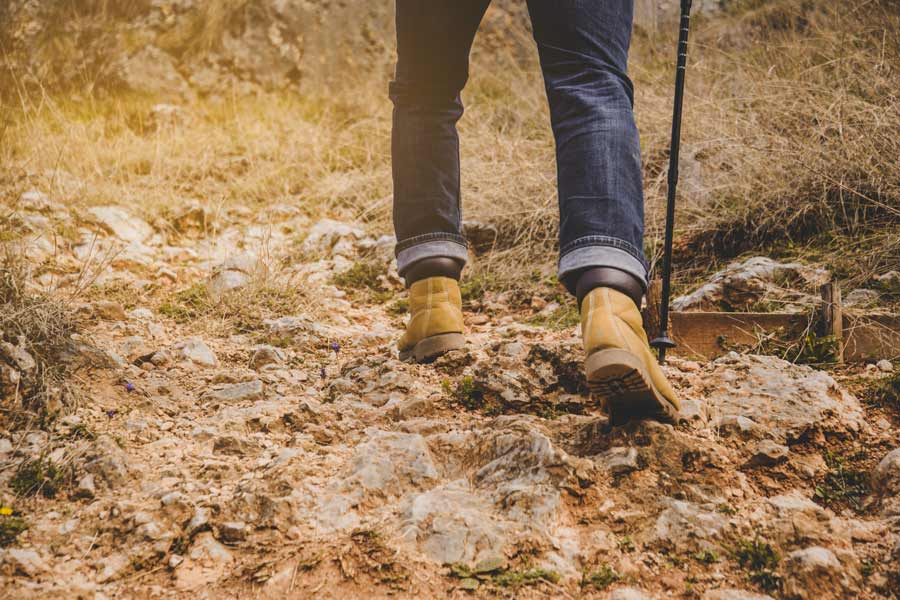
I hope this email finds you in good health and high spirits.
It’s spring holidays for all the schools here in Victoria, Australia. We left school pickup on Friday and headed to the coast with all our camping gear. We spent four nights camping, soaking up the ocean, sunshine, nature, and exploring. We are pretty seasoned campers, but this time, we made some rookie errors, once leaving out some food – returning to find the cockatoos had a feast and then somehow leaving the car on and emptying the battery. All that relaxing made us forgetful!
Much of the holiday was spent playing in the river or the ocean, on the grass or dirt, or walking in the forest. Breathing in the biome and playing in it – strengthening our immune systems and the overall landscape of our health.
That got me thinking back to when we were children and playing in the dirt was part of our normal daily activities. I remember making mud pies and collecting worms from the soil! And now I love getting back to nature with my family!
But when did everything change, and we became obsessed with being so sterile? You often hear parents call out to their children, ‘Don’t get dirty!’ or have the wet wipes handy at the mere glimmer of muck on their skin. The rise of city living and urbanisation also leaves fewer opportunities to get down and dirty with nature.
This disconnect with nature and our changing relationship with soil and dirt leads to a serious issue that may be affecting children’s immune systems.
The Emergence of the Hygiene Hypothesis
The Hygiene Hypothesis was first proposed in the late 1980s, primarily due to the efforts of Dr. David P. Strachan, a British epidemiologist. Dr. Strachan observed a peculiar trend in his research on allergies and infections: children growing up in larger families or rural environments appeared to have a lower risk of developing allergies and asthma than their counterparts in smaller families or urban settings.
This observation led Dr Strachan to question whether the increase in cleanliness and sanitation in modern society had unintended consequences on our immune systems. He proposed that early childhood exposure to various microorganisms, particularly those found in the dirt and farm environments, could help train the immune system and reduce the risk of allergies and autoimmune diseases.
More Recent Research
In recent years, the Hygiene Hypothesis has faced criticism and evolved in response to emerging research and changing perspectives in the scientific community. While the hypothesis provided valuable insights into the role of early microbial exposure in immune system development, it was considered overly simplistic by some scientists. Critics argued that the initial formulation of the Hygiene Hypothesis might not fully explain the complex interactions between hygiene, microbial exposure, and immune-related disorders.
Additionally, it became clear that the rise in autoimmune diseases and allergies could not be solely attributed to increased cleanliness. As a result, researchers have shifted towards a broader concept known as the “Old Friends Hypothesis” or the “Microbiota Hypothesis.”
This revised view emphasises early microbial exposure and the importance of a diverse and balanced microbiota throughout life, encompassing factors like diet, antibiotics, and lifestyle. This evolution in scientific thought reflects the ongoing quest for a more comprehensive understanding of the interplay between hygiene, microbes, and human health.
The Role of Beneficial Microbes in the Dirt
As research advances, scientists continue to unravel the intricate relationship between beneficial microbes found in dirt and children’s immune systems. These microbes, collectively known as the “microbiota,” consist of a diverse range of bacteria, viruses, fungi, and other microorganisms. They play a crucial role in regulating our immune responses and maintaining overall health.
Microbial Diversity: Dirt, especially in rural and farm environments, is teeming with a rich diversity of microorganisms. Exposure to this microbial diversity early in life can help educate the developing immune system, teaching it to distinguish between harmful pathogens and harmless substances.
Immune System Training: Beneficial microbes in the dirt stimulate the immune system, ensuring it responds appropriately to threats while avoiding excessive inflammation. This training can reduce the likelihood of developing allergies and autoimmune diseases.
Gut-Brain Connection: Recent research has uncovered the gut-brain connection, linking the gut microbiota to neurological and mental health. Exposure to beneficial microbes in dirt may contribute to better mental well-being in children.
Antibiotic Overuse: The overuse of antibiotics and the prevalence of overly sanitised living environments in modern society have disrupted the delicate balance of our microbiota. This disruption is believed to contribute to the rise in allergies, asthma, and other immune-related disorders.
Practical Implications and Future Research
The Hygiene Hypothesis and subsequent research have significant implications for how we approach health and hygiene, particularly in early childhood. Here are some key takeaways:
Moderate Hygiene: While maintaining basic hygiene is essential for preventing infectious diseases, excessive cleanliness and the overuse of antimicrobial products may have unintended consequences. Encouraging children to play outdoors, get dirty, and interact with nature can be beneficial.
Probiotics and Prebiotics: Consuming foods rich in probiotics (beneficial bacteria), like sauerkraut and kimchi and prebiotics (foods that support the growth of beneficial bacteria like onions, asparagus and leeks), can promote a healthy gut microbiome. This may reduce the risk of immune-related disorders.
Soil-Based Organisms
When supplemented, a class of friendly bacteria known as soil-based organisms (SBOs) helps nourish the gut as nature intended. SBOs are entirely undisturbed in their formulation and manufacturing process. They are dormant, intact, and alive when they reach your gut. When you take a capsule, they are activated to become living organisms. Once awakened, SBOs do what they do best in nature – survive the harsh digestive tract environment, band together, come to life, and start to multiply. These natural microorganisms help to support the delicate balance of the “good versus bad” bacteria in your gut, with the same diverse bacterial species found in nature and primitive guts thousands of years ago.
Conclusion
In conclusion, the journey from the original Hygiene Hypothesis to today’s more nuanced and comprehensive perspectives has been marked by both advancements and challenges in our understanding of the relationship between hygiene, microbial exposure, and human health.
As we continue to investigate the intricate interactions between our immune systems and the microbial world, we move closer to unlocking the keys to better health for future generations, grounded in a more holistic understanding of hygiene and microbes.
And we will continue to spend as much time outdoors as possible!
Recommended Product
PrescriptBiotics™
A custom-cultured blend of friendly, naturally occurring, soil-born microorganisms.
Completely chemical, toxin, and GMO-free.
Shelf-stable (no need to refrigerate once opened)
Wishing you good health and happiness.
Warm regards,
Olivia Redfern





